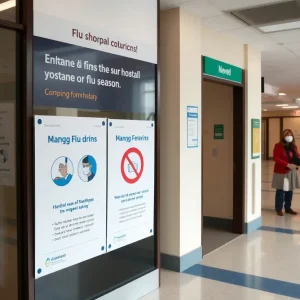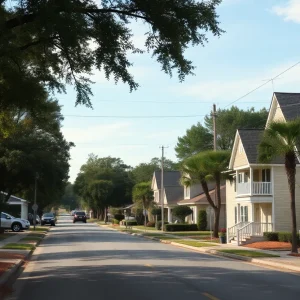Columbia: Toxic Chemicals Discharging from Local Plastics Factories
Columbia, South Carolina, is facing significant environmental concerns as a new report reveals that high levels of a toxic chemical, 1,4-dioxane, are being discharged into nearby rivers from local plastics factories. According to a study by the Environmental Integrity Project, it appears that these facilities are not being adequately regulated by state and federal agencies despite the health risks associated with the chemical.
What is Happening?
The study found that among eight plastics plants examined, those located near Columbia and Charleston are releasing substantial amounts of 1,4-dioxane, which has been linked to serious health issues, including cancer. The report highlighted that the Alpek Polyester plant in Gaston discharged an alarming 23,728 pounds of the chemical into the Congaree River in 2022, placing it second nationwide only to a plant in West Virginia. Another Alpek factory near Charleston released an additional 9,756 pounds into the Cooper River.
Where and When?
The environmental impact is particularly concerning due to the factory’s proximity to the Congaree National Park, a wildlife preserve and South Carolina’s only national park. The Alpek discharges are lower than drinking water intakes in Columbia, West Columbia, and Cayce, but they threaten the drinking water pipes in the Santee Cooper lakes area southeast of Columbia. The report, released on November 14, 2024, sheds light on ongoing issues surrounding pollution from the rapidly growing plastics industry.
Why is This Important?
There are no federal regulations limiting how much 1,4-dioxane can be released from plastics plants, a fact that the report highlighted as unacceptable. According to Bill Stangler, a local environmental advocate, it is crucial for federal and state agencies to take action to protect rivers and downstream communities. The U.S. Environmental Protection Agency (EPA) stated that South Carolina is responsible for overseeing waterway pollution under the federal Clean Water Act, but the report calls into question the effectiveness of this oversight.
Health Risks
Health experts warn that exposure to substantial levels of 1,4-dioxane can lead to liver and kidney damage, increasing the potential for serious long-term health issues. Additionally, the EPA recognizes 1,4-dioxane as a probable human carcinogen. This raises alarms for local residents who may be unknowingly consuming contaminated water, especially with discharges occurring close to public drinking sources.
Taking Action
The report has prompted calls for tighter regulations on plastics pollution, including the establishment of modern wastewater controls and monitoring for 1,4-dioxane. The Environmental Integrity Project advocates for both federal and state agencies to strengthen enforcement measures to combat pollution. The landscape of environmental law may see more citizen lawsuits aimed at ensuring compliance with established regulations.
Looking Ahead
As the issue of plastics pollution continues to grow, the future of environmental protections at the federal and state levels remains uncertain. The most recent findings have raised questions about how adequately these critical issues are being addressed. With the alarming levels of 1,4-dioxane noted in South Carolina’s waterways, local residents, and environmental advocates are left to ponder the health implications and the strength of existing regulatory measures.
The situation highlights the urgent need for transparent oversight of industrial discharges into the nation’s water systems. As Columbia grapples with these pollution concerns, the spotlight will remain on both the local and federal entities responsible for ensuring the safety of public waterways and the health of the communities that depend on them.


























